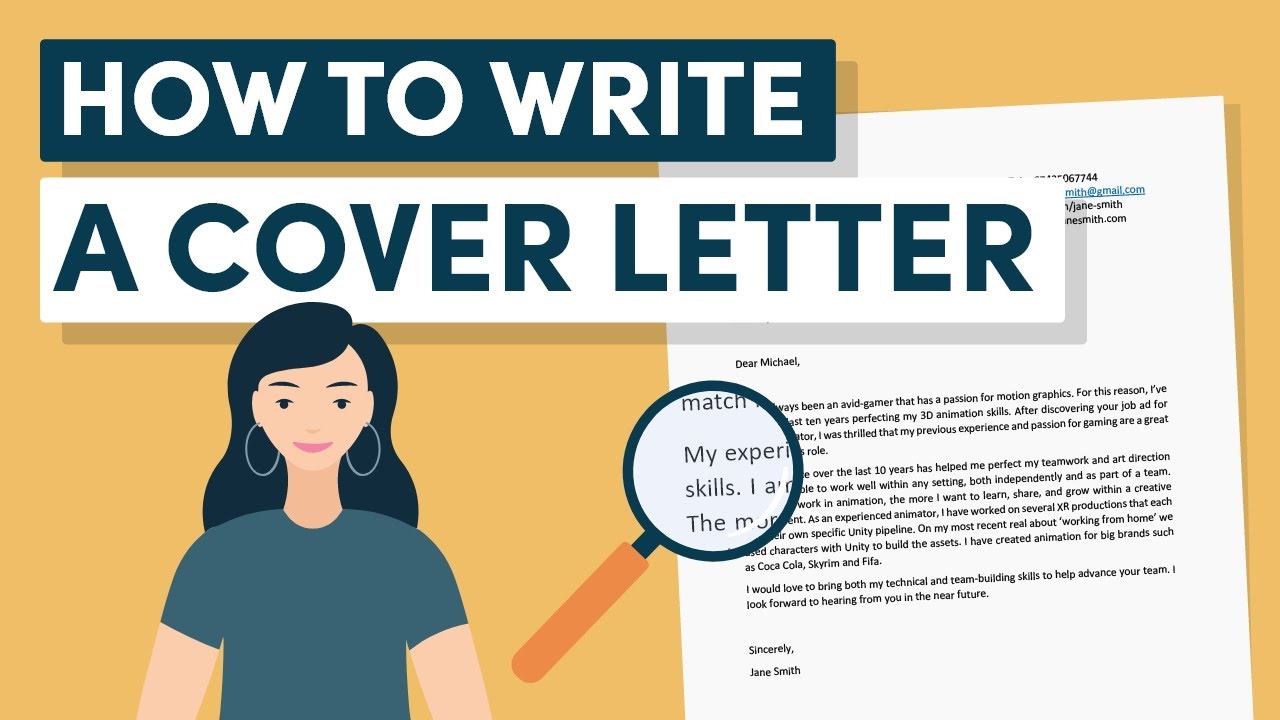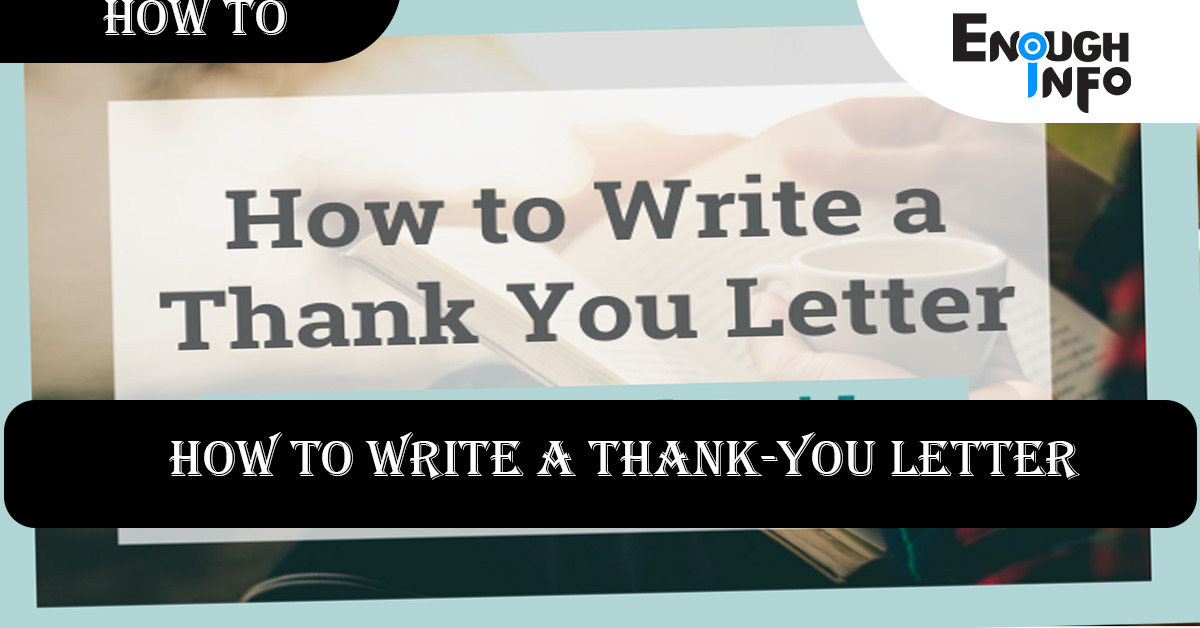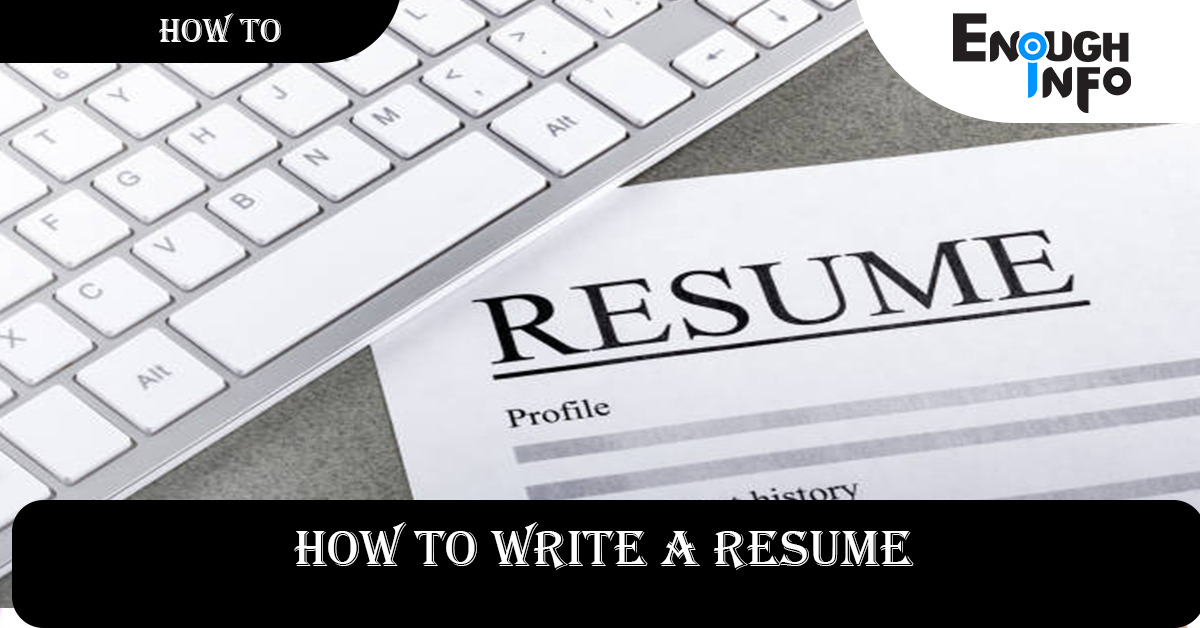How To Write A Cover Letter For A Job Application

How to write a cover letter for a job application – When applying for a job, your cover letter is your opportunity to make a great first impression and stand out from the competition. A well-crafted cover letter showcases your skills, qualifications, and enthusiasm for the position, providing a compelling narrative that complements your resume.
Read Also: How to write a resume(The Ultimate Guide)
Writing a cover letter for a job application can seem intimidating, but with the right approach, you can craft a compelling letter that highlights your qualifications and enthusiasm for the position. Here’s a step-by-step guide to help you:
Header: Include your contact information at the top of the page. This should include your full name, address, email address, and phone number. Optionally, you can also include your LinkedIn profile URL.
Salutation: Address the hiring manager or specific contact person by their name, if possible. If the name is not provided, use a generic salutation such as “Dear Hiring Manager” or “Dear [Department Name] Hiring Team.”
Opening Paragraph: Start your cover letter with a strong and attention-grabbing introduction. State the position you are applying for and mention how you learned about the job opening. You can also include a sentence that briefly highlights your qualifications or expresses your enthusiasm for the role.
Body Paragraphs: In the following one or two paragraphs, focus on showcasing your relevant skills, experiences, and achievements. Highlight specific examples that demonstrate your ability to meet the requirements of the job. Use keywords from the job description to align your qualifications with the position. Remember to be concise and specific.
Value Proposition: Explain why you are interested in working for the company and how your skills and experiences align with its mission or values. Research the company to show that you understand its goals and demonstrate your enthusiasm for contributing to its success. This helps establish your fit with the organization and shows your genuine interest in the role.
Closing Paragraph: Conclude your cover letter by reiterating your interest in the position and expressing your eagerness to contribute to the company’s success. Mention that you have attached your resume for their review. Additionally, you can express your availability for an interview or mention that you would welcome the opportunity to discuss your qualifications further.
Read Also: How to write a thank-you letter
Formal Closing: Use a professional closing, such as “Sincerely,” followed by your full name. Leave a space for your handwritten signature if submitting a printed copy.
Proofread and Edit: Thoroughly proofread your cover letter for any grammatical or spelling errors. Ensure that your sentences are clear and concise. Read the letter aloud or ask someone else to review it for clarity and effectiveness.
Format: Use a professional and easily readable font, such as Arial or Times New Roman, in 10-12 point size. Maintain consistent formatting throughout the letter, including margins and line spacing. If submitting electronically, save your cover letter as a PDF document to preserve the formatting.
Customize for Each Application: Tailor your cover letter for each job application. Address specific requirements mentioned in the job description and demonstrate your understanding of the company and its needs. Avoid using a generic template as it may come across as impersonal.
Mastering the Art: How to Write a Standout Cover Letter For A Job Application
In this article, we will guide you through the essential steps of writing an effective cover letter that captivates hiring managers and increases your chances of landing your dream job.
1. Understand the Purpose of a Cover Letter:
A cover letter is a professional document that introduces yourself to potential employers, highlights your qualifications, and explains why you are the ideal candidate for the job. It complements your resume by providing additional context and insights into your skills and experiences. The purpose is to demonstrate your genuine interest in the position, showcase your relevant achievements, and capture the reader’s attention.enoughinfo
2. Research the Company and Job Requirements:
Before writing your cover letter, thoroughly research the company, its values, and the specific job requirements. Visit the company’s website, review their mission statement, and familiarize yourself with their recent accomplishments or projects. Analyze the job description to understand the key qualifications and skills they are seeking. This research will allow you to tailor your cover letter to address the company’s needs and demonstrate your compatibility.
3. Format Your Cover Letter Professionally:
A well-structured cover letter follows a professional format. Include your contact information at the top, followed by the date and the recipient’s details. Begin with a formal salutation, such as “Dear Hiring Manager” or “Dear [specific person’s name]” if available. Use a professional and readable font, and keep the letter concise, ideally within one page.
Read Also: How To Write A Proposal(Steps and Requirements)
4. Engage the Reader with a Strong Opening:
Capture the reader’s attention from the start with a compelling opening paragraph. Start with an enthusiastic and attention-grabbing statement that highlights your interest in the position and the company. Consider mentioning a specific accomplishment or fact about the company that resonates with you. Demonstrate your knowledge and passion to create a positive first impression.
5. Showcase Your Relevant Skills and Experiences:
The body of your cover letter should emphasize your qualifications, experiences, and achievements that align with the job requirements. Use specific examples to illustrate how your skills have contributed to previous roles or projects. Focus on relevant accomplishments and transferrable skills that demonstrate your ability to excel in the new position. Be concise, but provide enough detail to showcase your expertise.
6. Align Your Achievements with Company Values:
Highlight how your personal values and professional accomplishments align with the company’s mission and values. Showcasing this alignment demonstrates your commitment and compatibility with the company culture. Explain how your skills and experiences make you an asset in achieving the company’s goals. This demonstrates your understanding of their needs and your potential impact as an employee.
7. Express Enthusiasm and Cultural Fit:
Convey your enthusiasm for the position and your eagerness to contribute to the company’s success. Demonstrate your knowledge of the company’s products, services, or industry and explain how your passion aligns with their mission. Additionally, emphasize your ability to collaborate effectively with teams and adapt to the company’s work environment. This demonstrates your cultural fit and dedication to being a valuable team member.
8. Close with a Strong Conclusion:
End your cover letter with a strong and confident conclusion. Reiterate your interest in the position and express your gratitude for the opportunity to apply. Mention that you look forward to the possibility of discussing your qualifications further in an interview. Provide your contact information again and express openness to any additional information the employer may require.
9. Proofread and Edit Carefully:
Before sending your cover letter, thoroughly proofread it for grammar and spelling errors. Read it multiple times and consider using spell-checking tools or asking a trusted friend or colleague to review it as well. Ensure the letter flows smoothly and is well-organized. Pay attention to the clarity of your sentences and the overall readability. A polished and error-free cover letter reflects your attention to detail and professionalism.
10. Customize Each Cover Letter:
Avoid using a generic cover letter for multiple job applications. Tailor each cover letter to the specific job and company you are applying to. Address the hiring manager by name if possible, and mention key details from the job description to demonstrate your understanding of the role. Customizing your cover letter shows that you have invested time and effort in researching the company and are genuinely interested in the position.
11. Keep a Professional Tone:
Maintain a professional tone throughout your cover letter. Use a formal language and avoid jargon or overly casual expressions. Be positive, confident, and respectful in your writing. Keep the focus on your qualifications and the value you can bring to the company. Avoid negative or critical statements about previous employers or experiences.
12. Follow Submission Guidelines:
Adhere to any specific submission guidelines provided by the employer. This may include submitting your cover letter in a specific format, attaching it as a separate document, or pasting it into an online application form. Failure to follow these instructions may give the impression of carelessness and could negatively impact your application.
Read Also: How To Write A Report(Steps and Requirements)
FAQs & Answers
Should I include personal information in my cover letter?
Can I use the same cover letter for multiple job applications?
It’s best to customize your cover letter for each job application. Tailoring your letter to the specific job and company shows your genuine interest and understanding of the role. Use the job description and company research to emphasize relevant skills and experiences that align with the position.
What should I do if I don’t know the name of the hiring manager?
If the job posting doesn’t provide the name of the hiring manager, you can use a generic salutation such as “Dear Hiring Manager” or “Dear [Department Name] Hiring Team.” However, if you can find the name through research or networking, addressing the letter to a specific person adds a personal touch and shows your proactive effort.
Should I mention salary expectations in my cover letter?
It’s generally not necessary to mention salary expectations in your cover letter unless explicitly requested by the employer. Focus on highlighting your qualifications and fit for the position instead. Salary negotiations typically occur during the interview stage or after a job offer has been extended.
How long should my cover letter be?
A cover letter should ideally be concise and focused, typically around one page in length. Keep it to a maximum of three to four paragraphs, providing enough information to showcase your qualifications and interest without overwhelming the reader. Use clear and concise language to make a strong impact within the limited space.
Can I mention my weaknesses or gaps in employment in my cover letter?
It’s generally not advisable to focus on weaknesses or gaps in employment in your cover letter. The purpose of the letter is to highlight your strengths and qualifications. If you believe it’s necessary to address any gaps in your employment history, it’s best to do so in a positive light during the interview or through other appropriate channels.
Should I send a cover letter as an attachment or in the body of the email?
Follow the application instructions provided by the employer. If the instructions don’t specify, it’s generally recommended to attach your cover letter as a separate document in PDF or Word format, unless otherwise requested. However, you can also include a brief introduction in the body of the email and mention that the cover letter and resume are attached for their review.
Is it essential to sign my cover letter?
In electronic submissions, it’s not necessary to physically sign your cover letter. Instead, you can include a professional closing, such as “Sincerely” or “Best regards,” followed by your typed name. However, if you’re submitting a printed copy, you can sign your cover letter above your typed name for a personal touch.How to write a cover letter for a job application
Read Also: How To Write A Literary Analysis( All You Need to Know)
Conclusion:
Your cover letter should complement your resume and provide additional context about your qualifications and motivation. It’s an opportunity to showcase your personality, enthusiasm, and why you are the ideal candidate for the job. With careful preparation and customization, your cover letter can make a positive impact and increase your chances of securing an interview.
A well-crafted cover letter is your chance to make a memorable impression on prospective employers. By following these steps and customizing your letter to the specific job and company, you can create a powerful document that highlights your qualifications, enthusiasm, and fit for the position. Remember to proofread diligently, maintain a professional tone, and showcase your unique value. With a standout cover letter, you can increase your chances of securing an interview and ultimately landing the job of your dreams.




